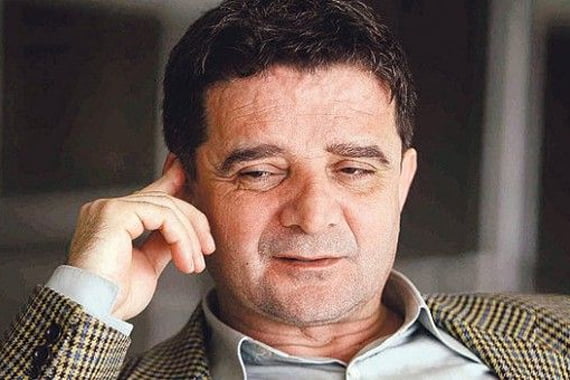Being partners of the state

Date posted: January 14, 2014
MÜMTAZER TÜRKÖNE
The freshly appointed justice minister, using phrases not easily understandable to people in the streets, said, “Neither God nor the state accepts partners.” This statement does not have an Islamic background.
Rather, it is reminiscent of Thomas Hobbes’ “Leviathan” or Bousset’s definition of monarchy. It draws parallels between the oneness and power of God and the uniqueness of the state in an effort to justify absolute monarchy. Amid this debate, Foreign Minister Ahmet Davutoğlu recalled the Ottoman state tradition of killing crown princes in order to eliminate potential rivals for the throne. These are the arguments the ruling Justice and Development Party (AK Party) comes up with to defend against the corruption investigations. The state is one, it cannot be divided and it does not accept partners. For this reason, the investigations conducted by the judiciary are perceived as an effort to establish an unfair tutelage over the state power.
You cannot justify the ruling AK Party without siding with a political system that openly rejects the mechanism of checks and balances and constitutional democracies’ principle of separation of powers. Pluralization of the state power, widespread legal and political review, popular participation in political decisions at every level and recognition of citizens not as the governed subjects, but as stakeholders, are some of the established concepts of modern democracies. Monopolization, unaccountability and the uncontrolled use of political power are unacceptable in today’s world.
The prime minister complains that the higher judicial council — the Supreme Board of Judges and Prosecutors (HSYK) — became completely independent with the constitutional amendments accepted in the 2010 referendum. The judiciary is independent, and this contradicts with the state order, he argues. The purpose of the new bill on the HYSK — which is currently being debated with much fighting at Parliament — is to make the judiciary subordinate to the executive branch. The prime minister publicly rejects the independence of the judiciary. As a matter of fact, this represents a regression that is worse than the argument that the state does not accept partners or the suggestion that rival brothers can be killed for the sake of the state. Even these extremist state practices would accept a partially autonomous judicial mechanism.
Do Turkey’s historical cultural codes and state traditions contradict democracy and a reviewable state system? We are forced to say “yes” to this question if we look at how in 11 years the AK Party has evolved into its current form. If single, absolute, indivisible, inalienable and continuous sovereignty, as defined by Jean Bodin, is produced, we need to look for the reasons not in history or culture, but in the very nature of politics. During the last 11 years, the AK Party purged its powerful rivals within the state. But as it just started to assume that it had taken the state under its complete control, the tower it had built with cards was brought to the ground. Unrivaled power suddenly collapsed and lost its strength with an investigation launched by two prosecutors. The government is now trying to survive the judicial review by relying on its parliamentary majority.
The government had channeled lucre from urban development projects and public tenders to a fund that it used to finance political activities. The ongoing investigations are revealing how this fund was established and run. The most serious crime a political party can commit in a democracy is to create and employ such secret funds. Not only the judicial investigations, but also other political developments are proof of the existence of such a fund. In such a case, the only way out for the government is to halt all reviewing mechanisms of democracy and law. It is for this reason that it purports extremist ideas, like that the state does not accept partners, as well as views that are reminiscent of advocating an absolute monarchy.
But every citizen is a partner of the state. The duty of a government is to perform common tasks in the name of these partners and based on the mandate given to it. As this simple principle will eventually prevail, there is no need to worry.
Source: Todays Zaman , January 13, 2014
Tags: Democracy | Freedoms | Turkey |
























